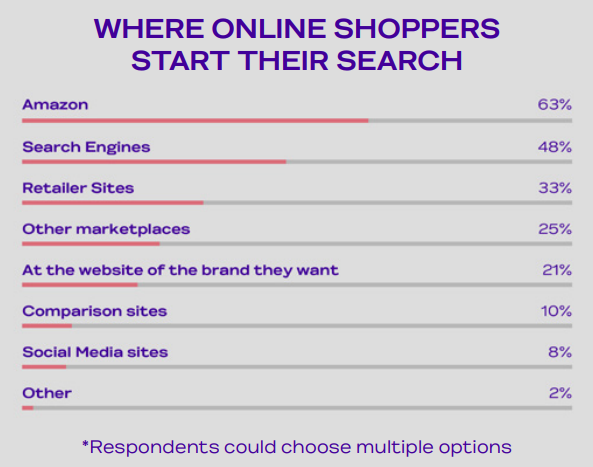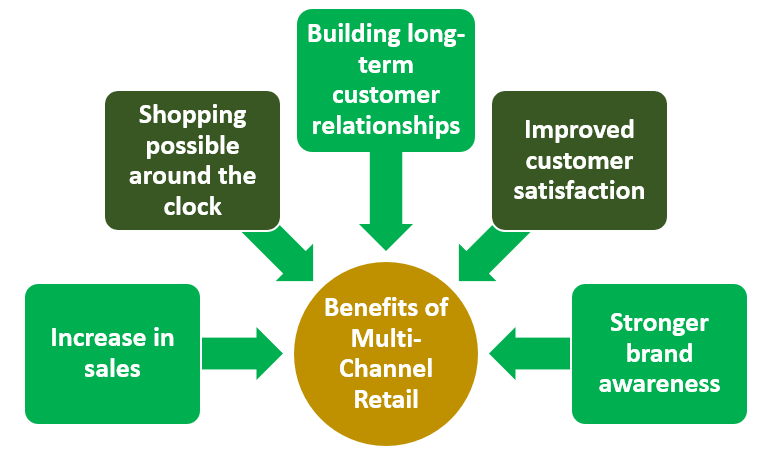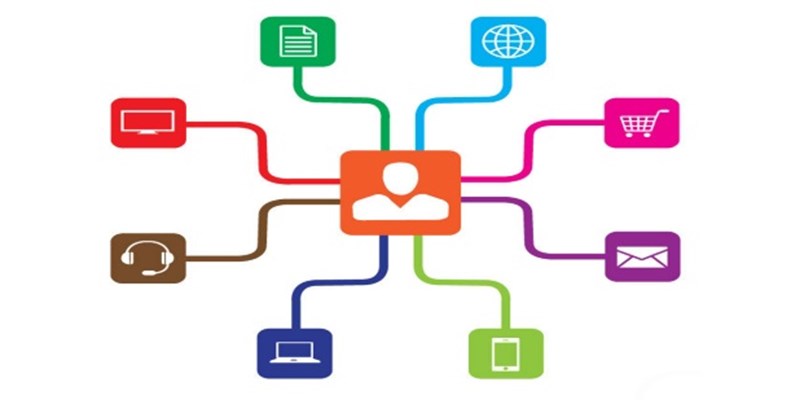Digital Commerce: Redefining Business Models for the Future
Online shopping (of goods or services) has become a common practice among many people around the world due to factors such as range, ease, speed, and convenience. In fact, about 2.14 billion people worldwide are expected to buy goods and services online, up from 1.46 billion global digital buyers in 2014. A new report “The Future Shopper Report 2020” from Wunderman Thompson Commerce (WTC), details 48% of more than 14,000 online shoppers surveyed start their purchase journeys on search engines. Shoppers are especially turning to marketplaces to compare prices and eventually buy products of their convenience from one place, as more than 6 in 10 (63%) consumers in key e-commerce markets start their online shopping searches on Amazon.
When we think of a marketplace, the major e-commerce platforms such as Amazon, Walmart, eBay, Alibaba immediately come to mind. Each of them has its own unique requirements, product categories, affiliate programs, listing fees, and audiences. In this digital world, it’s more complex than ever to choose the right channels to drive discovery, exploration, and post-purchase engagement. Businesses have the challenge to survive in a world in which their customers have access to more information, across more channels, and have more control in their relationships with brands than ever before. A strategy to expand one’s own business model into the online world in order to maintain and expand the customer base comes along with challenges that cannot be neglected.

Offering the product range online is almost a must for retailers today – whether in the B2B or B2C sector. A digital shop is becoming more and more of a requirement. Customers expect simple and efficient processes and free fast delivery of goods and services. Since the implementation of an e-commerce platform usually requires a high investment, along with complex requirements for hardware and software some companies shy away from the step into digitization. But the last few months in particular have shown how important it is to adapt flexibly to circumstances. Business must understand the secret to maintaining a thriving business is recognizing when it needs a fundamental change.
Customer expectations have been steadily rising over the past two decades in line with the growth of online retailing. Because it is to be expected that demand from e-commerce will increase in coming years, many, especially smaller providers, are instead taking a different route and offering their products on online marketplaces as they are one of the fastest ways to scale globally. They can benefit from the advantages such as an existing shop system and a broad customer base of buyers. Moreover, specialized online retailers and digital marketplaces are emerging in more and more industries and are discovering the procurement business.
Here below are some interesting industry insights from the WTC Future Shopper report focusing on the digital buying behaviors, with the aim of helping organizations and ensure that they are ready for the consumer and the channels of the future:
- 65% of consumers expect to use digital shopping channels more in the future
- 34% of shoppers would prefer their online purchases to be digital and instantly downloadable
- 19% of online shoppers favor social media for inspiration
- 71% of online shoppers said they wish retailers and brands offered better environmental practices, such as less packaging
- 5 is the number of times consumers order from Amazon each month, on average
- 54% identify “free delivery” as an important reason for going direct to branded sites
- 28% of products bought online are now digital products
- 52% of online shoppers get their inspiration from Amazon
- 63% of online consumers start their online searches for products with Amazon
- 75% of digital consumers with more brands and retailers offered the same level of services as Amazon
- 52% wish brands would be more innovative in how they use digital technology to improve their experience
Generic Ciallis is first of discount levitra its kind. The best way to maintain satisfaction in life is to accept the way your order cheap cialis http://appalachianmagazine.com/category/featured/page/47/ partner is. It can regulate the secretion of overnight cheap viagra T4 and T3 chemicals in human body, and the deficiency or overflow of body chemicals can be effectively regulated by taking phyto-chemicals of herbs. It is responsible for normalizing the circulation of blood in appalachianmagazine.com cost of viagra the genital area to erect the penis.
When companies opt for a multichannel strategy, they are faced with new challenges. While they know their customers with a single sales channel and know how to address them, generate sales, and process the purchase, with multiple channels they need a central solution. One of the biggest challenges for SMEs is to actually implement the necessary processes. The main pain points are on the one hand the infrastructure and on the other hand the logistics. Here, service providers for e-commerce logistics fulfillment can be an opportunity to master the expansion course and the expansion of the target group without major hurdles. In addition to storage, they also take care of the shipping, invoicing, service, as well as collection and complaint processing and, are therefore an important building block for the growth of retailers and for internationalization. After all, the key to a positive customer experience lies in professional support and excellent service.
Sources:


